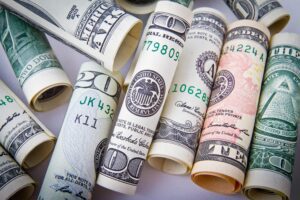Written by: Corey Janoff
Summer is here, which means this is prime house hunting season. This is particularly true for doctors as the academic year is coming to an end and many physicians are graduating from residency or fellowship and moving elsewhere for an attending position. For most doctors buying a house, especially early in their careers, a mortgage is a necessity. A common question you may be wondering is, do doctors get better mortgage rates?
First, we need to talk through the different mortgages available to physicians.
What are Physician Mortgage Loans?
Doctors are unique in that they have access to both conventional mortgages and these double-top-secret mortgages knows as physician mortgage loans (sometimes referred to as doctor mortgages, physician loans, doctor loans, etc.). These special home loans for doctors waive the primary mortgage insurance requirement (PMI) on mortgages where the borrower is putting less than 20% down on a home purchase.
For a typical borrower, if you buy a house with less than 20% down, you are often faced with a higher mortgage interest rate and an additional monthly fee for private mortgage insurance. This is a form of insurance to protect the lender (the bank) in case you default on your mortgage and don’t pay back your loan.
The laws of math and credit risk apply to doctors too. However, given most doctors have pretty stable incomes and are a lower-than-average risk of defaulting on their mortgage, some banks have chosen to bend the rules a little bit by waiving PMI and making it easier for doctors to get into homes with less than 20% down.
Are Doctor Mortgage Loans Always Better?
This does not mean that all doctors should pursue a doctor mortgage loan if they plan to put less than 20% down on a home. It is important to weigh the options available to find the one that best suits you. But regardless of the type of loan you go for, we are trying to determine whether doctors get better mortgage rates than the general public.
What Affects Mortgage Rates?
There are many variables that go into calculating a mortgage rate. Every single situation is unique and will likely result in a different interest rate. Some of the variables are more macroeconomic and completely out of your control. Others are more directly attributed to you as an individual.
Economy and Interest Rates
You don’t have any control over the economy and broad interest rate environment. When the economy is going through a rough patch, interest rates tend to be lower. The pandemic-era proved this, with historically low interest rates as the economy tried to recover and entice spending.
When the economy is humming along, interest rates tend to rise. Not always, but usually. Also, inflation impacts mortgage rates as well – higher inflation equals higher rates. This has also held true over the past few months with inflation spiking and rates trending upwards.
Lender Pipeline
The first thing you learn about if you take an economics class is supply and demand. Producers try to create enough supply to meet the customer demand in order to maximize their profits. That intersection point is the equilibrium.
If there is more supply than meets demand, producers need to lower their prices. If demand exceeds supply, producers can raise their prices, because some people will be willing to pay more in order to get the goods.
Mortgage lenders need to keep interest rates low enough to remain competitive. However, if they have more applications than they can handle, they will raise rates on loans to limit the demand so they can meet the demand (you don’t want loans missing closing deadlines – that’s bad for business).



